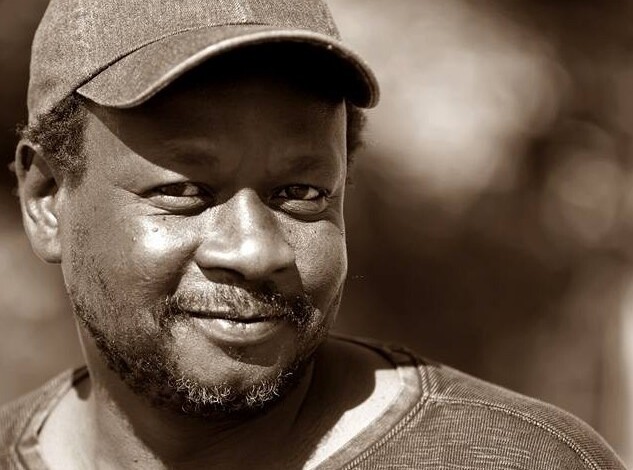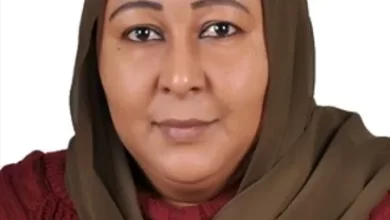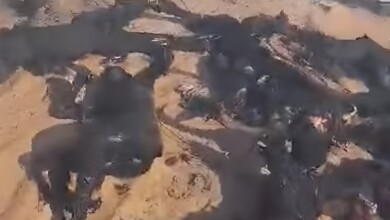They said short people became taller
Abdel Hafeez Maryoud

Without getting upset…
While Mohammed Ali Pasha, the son of Ismail Pasha had his hordes of Army expanding throughout the land of Nubia, there was more than one country, more than one system of government, that had to be crushed entirely, before the Pasha could establish his new authority.
The reason behind that is, after the destruction of the last of the Nubian kingdoms, in the north-central region (Soba), the region extending from the borders of present-day Ethiopia, to Wadi Halfa, was ruled by a Tribal Alliance that brought together (the Funj, Hamaj, Abdallab, Mir Afab and others). Powers were distributed wthin the alliance, according to tribal influence.
Darfur was under the Fur rule. Kordofan, El-Musaba’at, are ruled by the “Kira” cousins, on behalf of the Sultan of Fur, who resides in El-Fasher. While South Sudan was under the rule of the large tribes (Dinka, Nuer, Shilluk, Zande, Baria). It doesn’t seem like the east was under purely Sudanese authority. The main port then, Suakin, was entirely Turkish, falling directly under the responsibility of the Emir of Mecca. This was the reality 200 years ago.
Do you see ?
In the year 1824, that is, two hundred years ago, Osman Jarkas Al-Barinji, Hakimdar of Sudan, chose Khartoum as the capital of the country. The Turks (Ottomans) built modern Khartoum. We contributed nothing to it, except cheap labor. A (semi-European) city was built, and the Ottomans were able to administer the country. No trace remained of the capital of Sennaar or El-Fasher, as the Sultan Ali Dinar Museum, which is his home, was built on a later date. The same reasoning applies to (Arbaji), as a capital, or (Gurri). The capital of the Islamic Kingdom of Taqli, in the Nuba Mountains as well.
Do you see ?
There was no country called (Sudan) before the entry of Ismail Pasha. He was the one who united the three sultanates (Sennar – Darfur – Taqli) under one administration. With the help of Al-Zubair Pasha, by killing Sultan Ibrahim Qarad in Manwashi in 1874. Prior to that -Al-Zubair- had helped the Turks by annexing Bahr el-Ghazal to their rule, as a free service, for the sake of the “homeland.” Until the fall of the pashas rule, Suakin, the port, was outside the borders of the country.
The Mahdist State was then formed, being the first Sudanese rule for the new, unified Sudan, created by Ismail Pasha. Then came Britain and Turkish Egypt, since 1900, it has become (Anglo-Egyptian Sudan). Khartoum was re-planned in accordance with their aspirations. They built all State institutions, dividing the directorates, creating the Army, the railway, agricultural projects and the port of Port Sudan, to serve their purposes.
Do you see ?
They took what they wanted and left in 1956. National governments continued to maintain the old status quo. They didn’t propose a frame of vision. Whenever a party, shows even a hint of dissatisfaction; be it Merawi, Falati in the Nuba Mountains or Sahini in the outskirts of Nyala, the British will respond by treating them as a “Rebellion”…
National governments continued to apply the same tactics.. You cannot adopt an opposing or different vision. You cannot “rebel” against the rule. Because what Al-Khawaja stated is the principle, the absolute truth.
Hence..
It will be necessary to seize this “opportunity” of war to rebuild what can be called “the homeland.” Clearly, it was built with much haste, however agreed upon, and on foundations that didn’t stipulate that ambitions and aspirations must be met, suffering through one crisis adter another until the south became a separate State. Fighting and continuing to fight internal wars, continuing to wander and perpetuate stupidity. It will be rather necessary to work on humility if united under a new system and foundations.
It isn’t wise to insist on taking the arduous path only to discover that (1+1=2)… Everyone will have to engage in different ways to create a bright future for the future generations.
Everyone, without exception has suffered alot of pain, but there is no escape from it. You must review the arbitrary configuration of (Sudan). Not because its the product of Malaysian collection, but rather to consider whether its fit to survive, on new foundations, or whether there is no escape from its dispersal. This can be done without shedding more blood and wasting more human and material resources.
Do you see ?
I believe that the willingness to destroy Sudan, on the part of its people, stems from the fact that they didn’t bother to formulate it, to manufacture it…others built it for them. They built almost everything for them. If they had worked hard to build it, they wouldn’t have been so blasé about its destruction.





